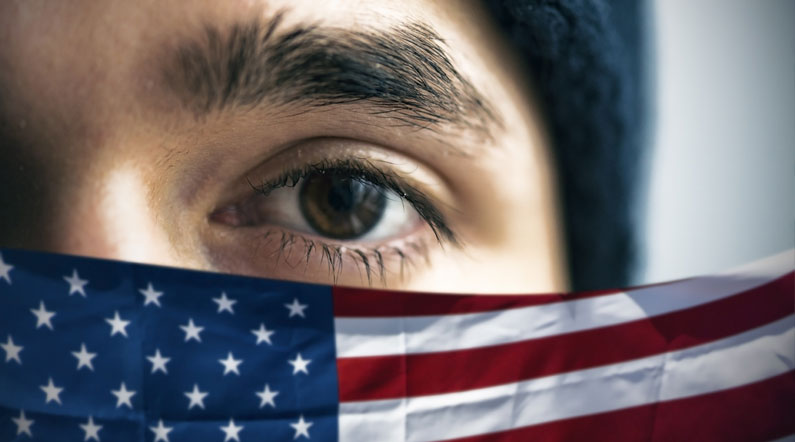We live in interesting times. In the marketing world, the Super Bowl is equivalent to the Academy Awards. Brand marketers showcase their commercials to an anticipating public. This year, the tone is a bit different. In the last couple of weeks, companies have been publicly called out by President Trump and new policies have put companies in an awkward position. Predictably, much attention has turned to Budweiser’s seemingly pro-immigration ad about co-founder Adolphus Busch that was probably developed months ago.
This spot is a feel-good origin story that reinforces the “bonafides” of Budweiser’s taste and is not a political statement. It is likely an evolution of Budweiser’s 2016 “America” campaign and a theme Anheuser- Busch used in 2016 for both Budweiser and Bud Light (The Bud Light Party). However, in today’s political climate, it is likely to spark debate.
Brand Associations: A Refresher for Marketers
In this new environment, marketers will have to consider their brand messaging and the associations they are reinforcing. Brand associations, imagery that customers associate with our brands, can be both good and bad. For example, on the positive side, customers might associate safety with Volvo, innovation and intuitiveness with Apple and youth with Pepsi to build long-lasting customer relationships. On the negative side, bad associations can damage a brand’s reputation. Bad tasting pizza forced Domino’s to act, the E. Coli outbreak at Chipotle has the brand reeling and the Exxon Valdez oil spill still casts a negative halo on Exxon Mobil. In these cases, brands had some degree of control over the product, brand or circumstance. But what happens when new associations completely outside of their control hit all brands?
Politics NOT as Usual
In the past, being from the United States helped brands like Coke and Levi’s expand their global footprint. Levi’s played a small part in bringing down Communism (Levi’s were smuggled behind the iron curtain) and Coke was the brand ambassador for American optimism and effervescence.
In today’s world, many brands derive an ever-increasing part of their revenues from outside of their domestic market. To be considered in Interbrand’s Top 100 Global Brands list, a company must do business on at least 3 continents and derive at least 1/3 of their revenues from outside of their domestic market.
One set of associations that tend to be stable are the associations tied to a brand’s country of origin. In some cases, this is irrelevant, but for many US brands, this has been an asset. For the majority of global consumers, the associations they’ve developed over time regarding the United States have generally been positive: freedom, the American Dream, accepting of others, innovation and a beacon of liberty and hope. There may be some negative associations as well, but these associations are the most top of mind.
Over the last two weeks, the political hurricane out of Washington D.C. has ignited protests across the US and around the world. In the span of just over a week, President Donald Trump has had tumultuous phone calls with allies, has put countries on notice and instituted a ban on travelers from seven largely Muslim countries. In short order, some very negative brand associations are forming toward the U.S. internationally as well as domestically.
So here at home, what happens when brands like Ford, Carrier and Lockheed Martin are called out by the President? Will consumers think twice about considering a Ford automobile or Carrier air conditioner? Will new military contracts be steered clear of Lockheed Martin? President Trump has not only called out specific brands but entire industries, like the automotive and pharma industries.
Brands in Global Crisis Mode
To avoid negative associations forming about the U.S., many U.S. companies, in an unprecedented way, spoke up quickly and loudly against the immigration ban – praising the diversity of their workforces and the innovative ideas this helps generate. They did this in print ads, commercials, press releases and employee meetings. While standing up for American values is a part of the calculus, their bigger fear is that global consumers will stop buying their brands. That’s why technology brands like Uber, Google, Facebook, Twitter and Amazon came out so quickly and loudly against the ban. For some, well over 50% of their users are outside the US. Their revenue streams are at risk if global consumers and advertisers “boycott” US products.
In fact, given the avalanche of invective directed towards Mexico, Mexican consumers are talking about organizing boycotts of American brands like Starbucks (actually owned by a Mexican franchisee) and Walmart. Mexico is Walmart’s second largest market outside the US – ouch! So what does the Avocados from Mexico consortium do in their Super Bowl Spot? Should they respond on behalf of Mexico? It’s a difficult position. It appears they decided to steer clear of controversy by focusing on the health aspect of avocados in a humorous spot.
Don’t avocados just bring us together?
Companies Making Statements
This Super Bowl, most brands are treading lightly. However, one first time Super Bowl advertiser, Lumber 84, wanted to make a statement. They spent $15 million for 90 seconds. However, their original spot was not permitted to air because it was deemed too political. They’ve had to re-shoot their spot for the big game. Other brands might choose to associate with positive images that all can agree on. Hyundai’s no-lose strategy celebrates the courage of U.S. troops.
2017 is potentially going to be a wild year for marketers and we’re on edge. Really thinking about what your brand stands for and examining your brand associations is going to be important. Will you have to consider outside associations that you’ve never before considered to be part of your brand calculus? Marketers will have to stay hyper-vigilant as the year evolves. Brands are important assets and you want to be the one shaping your own brand’s destiny.
Politics aside, let us know the state of your brand and whether external associations might complicate your brand strategy in 2017?


Recent Comments